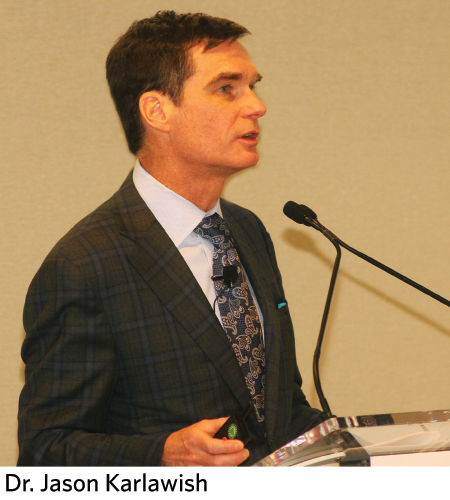Financial decisions can reveal a person’s brain health, according to Dr. Jason Karlawish.
“If a new patient would just give me his financial records, I could immediately see what is going on in his brain, but instead I have to talk to his caregiver for 20 minutes,” said Karlawish.
“This is why financial advisors have to be in the forefront of the fight against cognitive decline, which can lead to the financial exploitation of the elderly,” added Philip Marshall, an advocate for elder justice.
Karlawish and Marshall were among the speakers at a recent New York City conference, Financial Wellness for Longer Lives: New Approaches to Working and Saving. Karlawish is a professor of medicine, medical ethics and health policy, and neurology at the University of Pennsylvania. He has done extensive research on cognitive decline in the elderly.
“Among the first signs of cognitive changes caused by diseases such as Alzheimer’s, as well as cognitive aging, are changes in our capacity to manage finances,” Karlawish said. One of the goals of his research is to be able to diagnose Alzheimer’s disease before symptoms appear.
“Alzheimer’s is one of the factors that can dramatically raise the risk of elder fraud and financial exploitation of the elderly,” he said. “Because of this, we do not know the real cost of Alzheimer’s to society.
“Client incapacity is an issue for financial advisors, as is financial exploitation, because of the difficulty it causes with making financial decisions, including in 401(k) plans,” he added.
Financial advisors can be the first to spot cognitive decline from aging or from a disease and they need to know how to tell a client he or she may have a health problem. “We learned in medical school how to deliver bad messages to patients; financial advisors need to be able to do the same,” he said.
“Advisors should be watching clients who are making bad financial decisions” or asking illogical or repetitive questions, Karlawish added, and they should be able and willing to take action.
He acknowledged that a client’s privacy has to be guarded, “but privacy is only one value to be judged; it is not the only one.”
Advisors should realize that for an elderly person who is the victim of fraud, the lost money is not the only problem. The lost money leads to depression and stress, said Dr. Gary R. Mottola, a research director at the Financial Industry Regulatory Authority.
Consumers are beginning to demand highly trained bankers and advisors who understand cognitive decline, added Ramsey Alwin, director of thought leadership and financial resilience for AARP. Therefore, financial advisors are going to have to be trained to recognize some health issues.
Unfortunately, the issue of cognitive impairment that impacts financial decisions—and is often first seen through financial decisions—happens just at the time people have the most money and when they are faced with more complex decisions, said Bruce Wolfe, executive director of the BlackRock Retirement Institute.
Progress is  being made on protecting financial professionals who act on their knowledge of cognitive decline and recognize when clients are making bad decisions, noted Joseph P. Borg, president of the North American Securities Administrators Association and director of the Alabama Securities Commission.
being made on protecting financial professionals who act on their knowledge of cognitive decline and recognize when clients are making bad decisions, noted Joseph P. Borg, president of the North American Securities Administrators Association and director of the Alabama Securities Commission.
A bill is pending in Congress that would protect advisors who report suspicious activity indicating financial abuse. It’s called the Senior Safe Act. Alabama, meanwhile, has passed a law requiring financial professionals to report suspected abuse and the state has developed a model law that other states can follow to do the same.
“Our law mandates that advisors report suspected abuse, but states can also make it voluntary and still enact protection for the advisors from lawsuits,” Borg said. “The next step for us is to bring all state agencies that deal with financial fraud together so they can talk to each other.”
The issues of cognitive decline and exploitation of the elderly are “where drunk driving was 25 years ago, before people took that issue seriously,” Borg said. “People are now starting to take this issue seriously.”